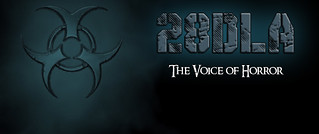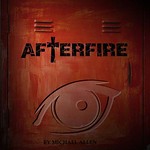
While on vacation in Northern Australia, Gracie, her husband Adam, and her younger sister Lee decide to take the Blackwater Barry tour in the swamp for fishing. Their guide Jim uses a small motor boat and takes the tourists along the river to a remote fishing spot. When they stop, the foursome come under attack from a huge crocodile that capsizes their boat and immediately kills Jim. The three survivors climb a tree and when they realize that no help will be coming, they decide to try to find a way out of their location. However, this man-eater wants more than a snack and will not give up until he dines on all four travellers (Internet).
Release Date: February 19, 2008.
Rating: Rated R for terror/violence and language.
Starring: Diana Glenn, Maeve Dermody, Andy Rodoreda, Ben Oxenbould, and Fiona Press.
Directors: David Nerlich and Andrew Traucki
Writers: David Nerlich, and Andrew Traucki.
Composer: Rafael May.
"Black Water," is a film from Australia that puts the fear into an already horrifying film with the correct use of music, and natural locations. The swampy backwoods of the Australian outback are the backdrop to the film and act as an isolator of the four characters within the environment. The natural setting is given emphasis through shots of the wilderness at medium distance and longer shots of characters living uncomfortably in the brush. Also, the use of music in "Black Water," matches the mood of the characters, subtly and the soundtrack keeps in sync with the picture throughout. Starting off with light tones initially the soundtrack shifts to more sombre melodies as the plot moves into more tense territory. The sometimes mysterious, eerie musical choices hint at the direction the story intends to take and creates an overall intensity in the film.
"Black Water," primarily focuses on three actors, each of whom are relatively unknown to North American viewers, and the characterizations are done with the believable use of emotional expression. Early in "Dark Water," the primary emotion of the characters seems to be happiness; however, later in the story the characters display mostly fear as a hungry crocodile diminishes the cast through brutal water attacks. The director has chosen unknown actors probably to focus on the story and writing of the film while making it seem like the situation, within the picture could happen to anyone. Only some slightly bizarre behaviours from a couple of the actors creates for a laughable watch as the actors scream for help at inopportune times, and seem to be laughing during intense arguments. Overall, the acting within "Black Water," comes across as believable and helps keep the story flowing at a moderate pace.
Some of the best scenes within the film occur at night as the lighting slowly diminishes from a somewhat overly bright film. Several shots involving lightning and light reflecting off of an enormous crocodile really amp up the tension in the film, but director Nerlich under uses the darkness, and instead keeps the picture primarily in very bright sunlight. Using a few shots of a natural sunset to cue the viewer in to the oncoming presence of night, the director uses long and medium shots to allow for scene changes. If the crocodile could have been put in a few more shadows to disguise the predator the suspense within "Black Water," would have been much higher.
Director David Nerlich uses several different shooting styles to display "Black Water," in a creative way that manages to entertain. Mostly using close-ups of the characters, in order to show facial expressions Nerlich switches up the pacing of the film by using medium shots to fully bring to life the natural environment. As well, the director shifts to underwater photography in order to emphasize the threat of this water predator. Nerlich also skims across the water with a High Definition camera to place the viewership in the role of an angry crocodile. The varying types of shots heighten the visual aspects of the picture and enhance the central setting of the Australian swampland.
The sound effects are on cue while the plot, which is unlikely to occur comes across as somewhat enjoyable. The likelihood of a man eating crocodile that does not get his fill from a 170 pound corpse slightly takes away from the picture; yet, the plot does unfold in a logical, linear fashion with the primary focus of the story on the surviving characters. Some early introductory scenes showing the reason for a crocodile acquiring a taste for human flesh could have given "Black Water," more believability. The snapping of jaws, rustling of the boat, and splashing of water each come across at the right time and with the right amount of volume. No dubbing is apparent in the film and the sound effects add to the realism of the film.
"Black Water," is a small, Australian, horror film that could have been given a few more early surprises initially, but the film is very watchable and oftentimes intensely suspenseful. Focusing on a small cast of characters in a natural outdoor environment, the film is a fun watch for thriller movie fans. Gore is almost entirely absent, but writer Andrew Traucki tells the tale of "Black Water," through a terrifying, claustrophobic lens that will entertain most horror fans.
5.5 Teethy Skulls out of 10.
A trailer for "Black Water," here:
Sources:
Black Water at IMDB
 Stumble It!
Stumble It!

 Sunday, January 25, 2009
Sunday, January 25, 2009
 Michael Allen
Michael Allen


 Posted in:
Posted in: 


0 comments:
Post a Comment